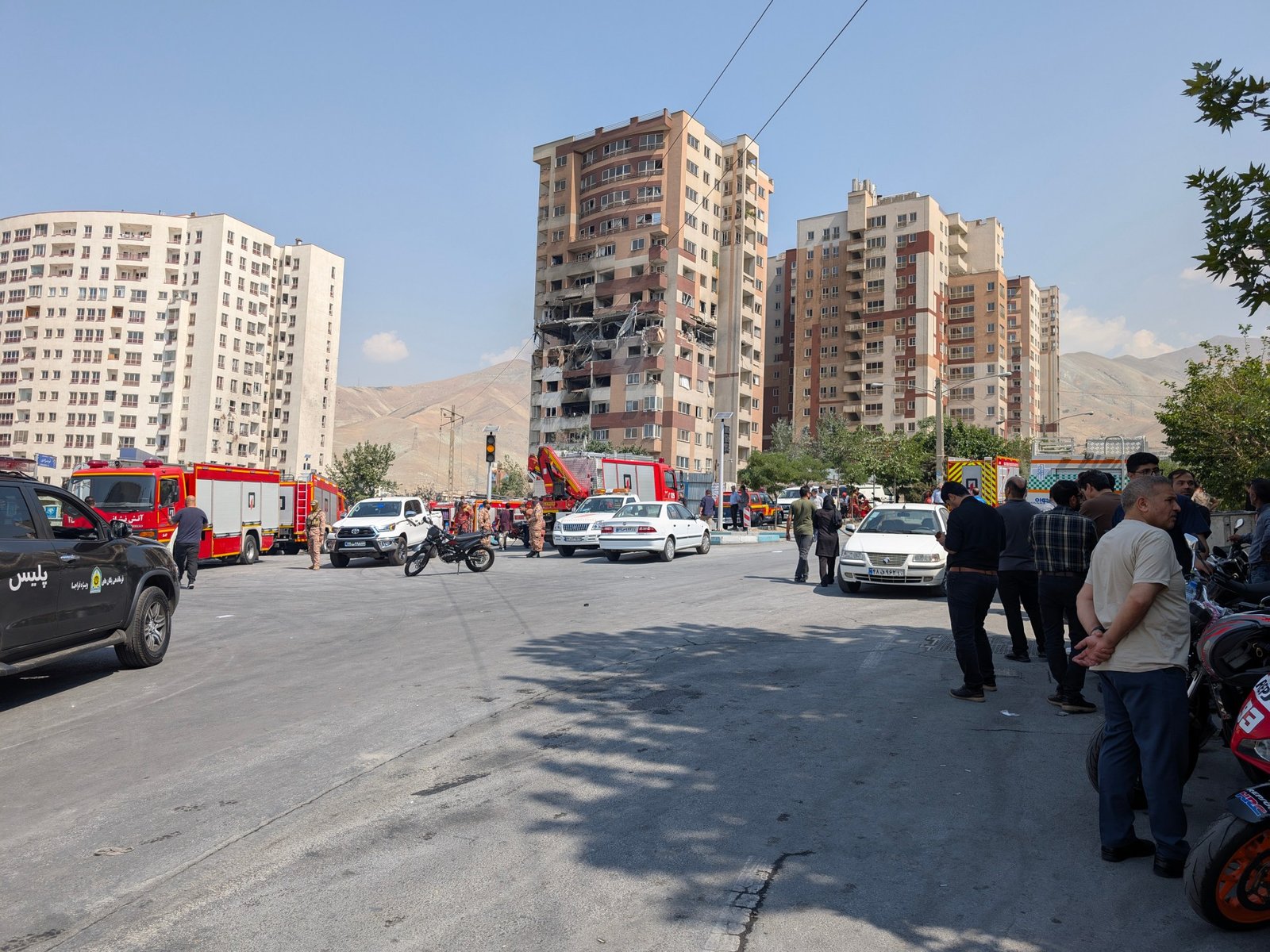Physical Address
304 North Cardinal St.
Dorchester Center, MA 02124
Physical Address
304 North Cardinal St.
Dorchester Center, MA 02124

Teheran, Iran – Roya, the 62 -year -old Iranian capital, was awake awake immediately after.
“It was absolutely terribly, my heart beat from my chest,” she recalled. “I saw the smoke on the horizon and at first I thought all the strikes were further, but when the pictures appeared, I found home from us just a few streets of us,” she told Al Jazeera.
Throughout Tehran, residents fought the first air strike on the heavily populated residential areas throughout the city since the 1980s in the war in the 1980s.
The building, located near Roya’s home – she asked only her name – was among the many residential units, which Israeli warlines were facing at least five rounds of air strikes that lasted several hours.
At least six nuclear scientists and physicists, including the former head of the Iranian Nuclear Energy Organization, were killed in the attacks. Several of the country’s highest military commanders, including Armed Forces Heads Mohammad Bagheri, the Islamic Revolutionary Security Corps (IRGC) Command Hossein Salami and IRGC Aviation and Space Power Chief Ali Akbar Hajizadeh, were killed.
Ali Šamkhani, a former security chief and leader Ajatolla Ali Khamene’s leading advisor, was also reported poorly injured after his home was bombed in northern Tehran.
Some members of the civil servants and scientists were killed alongside them.
Khamene and other senior officials have promised to take revenge and blame Israel and the United States for considerable tension and risking the entire war.
Iranian diplomats and chief of nuclear weapons Mohammad Eslami also blasted the International Atomic Energy Agency (IAEA) and its highly criticized boss Rafael Grossi for forcibly condemning repeated Israel and US threats for air strikes on Friday. They said the global core guard, which, on Thursday, adopted the strongest resolution of distrust against Iran, has become a “tool” for Israel and its Western allies. Grossi said on Friday that IAEA opposed all the attacks on nuclear equipment.
Iran’s main nuclear equipment isfahan Natanz also widely bombed Israeli war plane, and Behrouz Kamalwand, deputy chief of nuclear weapons, saying that the goal is to enter uranium enrichment sites, which are buried in deep underground.
Natanza’s damage is still unclear, but Tehran said there was no indication of the pollution caused by nuclear material in the area. The Israeli army also attacks several military sites and civilian infrastructure, such as power plants.
Almost immediately after the strikes, people at almost all gasoline stations in Iran formed long queues for fear. Iranian officials said fuel supplies were not disturbed and that the country’s oil spaces were not spoiled.
The Ministry of Information and Communication Technology announced “temporary Internet restrictions” after the devastating attacks. The Ministry of Culture said all art events and music concerts were canceled until further statement as a result of “criminal and terrorist” strikes.
Some Tehrani people even temporarily left the city because Israel has announced that they want to start even more so -called “preventive” attacks on Iran’s soil in a self -proclaimed price to “defend” themselves.
Because residential areas are heavily bombed and some buildings light fire, authorities said several civilians, including children, are among those who are brutally killed.
“She was not a military person, a nuclear figure or official. She was just a girl who loved cycling and nature. She was my girlfriend, her name was Najmeh,” a tweet journalist Fatemeh Kalantari with a photo of her friend killed by Israel.
State -backed demonstrations were formed in Tehran and throughout the country to condemn deadly strikes.
The attacks took place on the eve of EID al-Ghadir, an important religious event for the Muslims of Shiya, during which the Iranian authorities organize a large-scale celebration in Tehran and other major cities.
The authorities said the measures planned on Friday would be shortened and some will be turned into protests against the latest Israeli murders, which since October 7, 2023 have massacres at least 55,000 Palestinians in the Gaza Strip and thousands of others throughout the region.
On Friday, US President Donald Trump said he knew strikes, but said Washington did not provide military support. He urged Tehran to return to the negotiating table and concede.
The attacks took place only two days before Iran and the United States to act in the sixth round of nuclear talks in Moscow through mediation in Oman. These conversations have now been canceled.

Trump, who initially reiterated that his only demand in the conversation was that Iran had no nuclear bombs, has hardened in recent weeks to demand zero uranium enrichment in Iranian soil. Iran has emphasized this condition, claiming that low -level enrichment of civilian use, such as power generation, is an integral part of national rights to which Iran has sacrificed, including the murders of its nuclear scientists.
In response to IAEA’s mistrust on Thursday, Iran announced that it would create its own third nuclear enrichment site in a “safe” place, as well as the modernization of centrifuge at the Fordow enrichment site.
Iran is now enriching uranium up to 60 percent, but claims to require military applications for its nuclear program.
The 2015 nuclear agreement with world powers, which Trump unilaterally torpedoed in 2018, allowed Iran to enrich up to 3.67 percent under the supervision of an intense IAEA.
Fordov was among the sites on which Israel focused on attacks. The nuclear site has dug in the mountains to protect it from such strikes, and there are several explosions in the area and air protection products activating on Friday.
Iranian defense batteries seemed more successful in involving incoming shots in Tehran on Friday night, when Israeli military aircraft also launched more attacks on Tabriz.
The Iranians gather on Tochal Mount Tehran’s air protection, intercepting hostile Israel’s goals.
Follow the press on the TV site Telegram: pic.twitter.com/ufz3dkridj
– Press TV 🔻 (@Pressstv) June 13, 2025